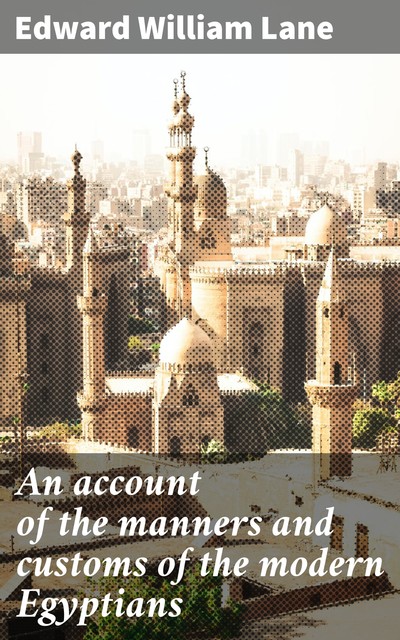In “An Account of the Manners and Customs of the Modern Egyptians,” Edward William Lane offers a vivid and meticulous ethnographic study of life in 19th-century Egypt. Lane's literary style is marked by an insightful blend of observation and analysis, utilizing rich, descriptive language that brings to life the daily practices, social structures, and cultural nuances of Egyptian society. This seminal work emerged during a period of burgeoning Western interest in Eastern cultures, serving as both a travel narrative and a scholarly resource, deeply rooted in the author's experiences as a resident and scholar in Cairo. Edward William Lane was not only a pioneering Egyptologist but also a skilled linguist and translator, renowned for his deep engagement with Arabic literature and culture. His immersive experiences and relational understanding of Egyptian customs were instrumental in shaping the text, as Lane sought to bridge the gap between Eastern traditions and Western perceptions. His commitment to an authentic representation of Egyptian society distinguishes this work, reflecting both his scholarly rigor and genuine empathy towards the subject matter. Readers seeking to explore the rich tapestry of Egyptian life through a historical lens will find Lane's work both enlightening and engaging. The book serves as a crucial contribution to the fields of anthropology and Middle Eastern studies, providing valuable insights for anyone interested in the dynamics of culture, society, and colonial narratives.


